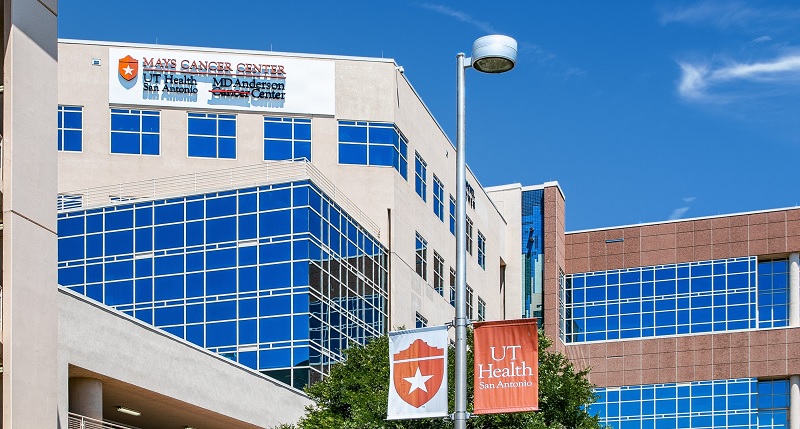Pilot project to study the impact of a holistic intervention on cancer survivors

By Kate Hunger
A new pilot study involving the Department of Physical Therapy in collaboration with the Institute for Health Promotion Research will gauge the impact of a holistic intervention program on the overall wellbeing of cancer survivors.
“We are finding out that if physical therapists just take care of the physical aspects of health by itself, we are pretty much just scraping the surface,” said co-principal investigator Alexis Ortiz, PT, Ph.D., SCS, CSCS, FACSM, professor and chair of the physical therapy department.
Ortiz is collaborating with principal investigator Daniel Hughes, Ph.D., Assistant Professor/Research of the Institute for Health Promotion Research at the School of Medicine. The one-year pilot is funded by an institutional grant through the Mays Cancer Center.
Ortiz and Hughes aim to recruit study subjects this summer from greater San Antonio and possibly the South Texas region, a wide geographic area made possible by the researchers’ use of a telemedicine platform as the primary means of delivering the intervention and communicating with study participants, Ortiz said.
“We are going into it with the idea that we are going to get them to do as much as they can do toward the physical activity guidelines,” of the American College of Sports Medicine, Hughes said.
However, the ultimate goal is to determine whether a holistic intervention approach improves cancer survivors’ quality of life as measured by body, mind and spirit, he said.
“Exercise is a part of it—but it’s only a part of it,” Hughes said. “The intervention also includes, diet, spirituality, meditation, yoga and psycho-social support.”
Subjects will undergo a 16-week study and return six months later for repeat assessments in order to gauge the intervention’s effectiveness. Second-year doctoral physical therapy students are helping with the comprehensive assessments for the study.
“We will assess physical function, blood biomarkers and mental health through the intervention to see the biological and mental benefits of engaging in our intervention,” Ortiz said.
Intervention plans will be tailored to each subject’s individual motivational profile. Any adult who has had a cancer diagnosis and is in any stage of treatment will be eligible to participate, Hughes said.
“Cancer is beginning to be thought of as more of a chronic disease,” he said. “What we are hoping here is as we learn how to apply this better it will become more mainstream, and ultimately primary care providers or oncologists can reach out to people like us or make it part of their own practice.”